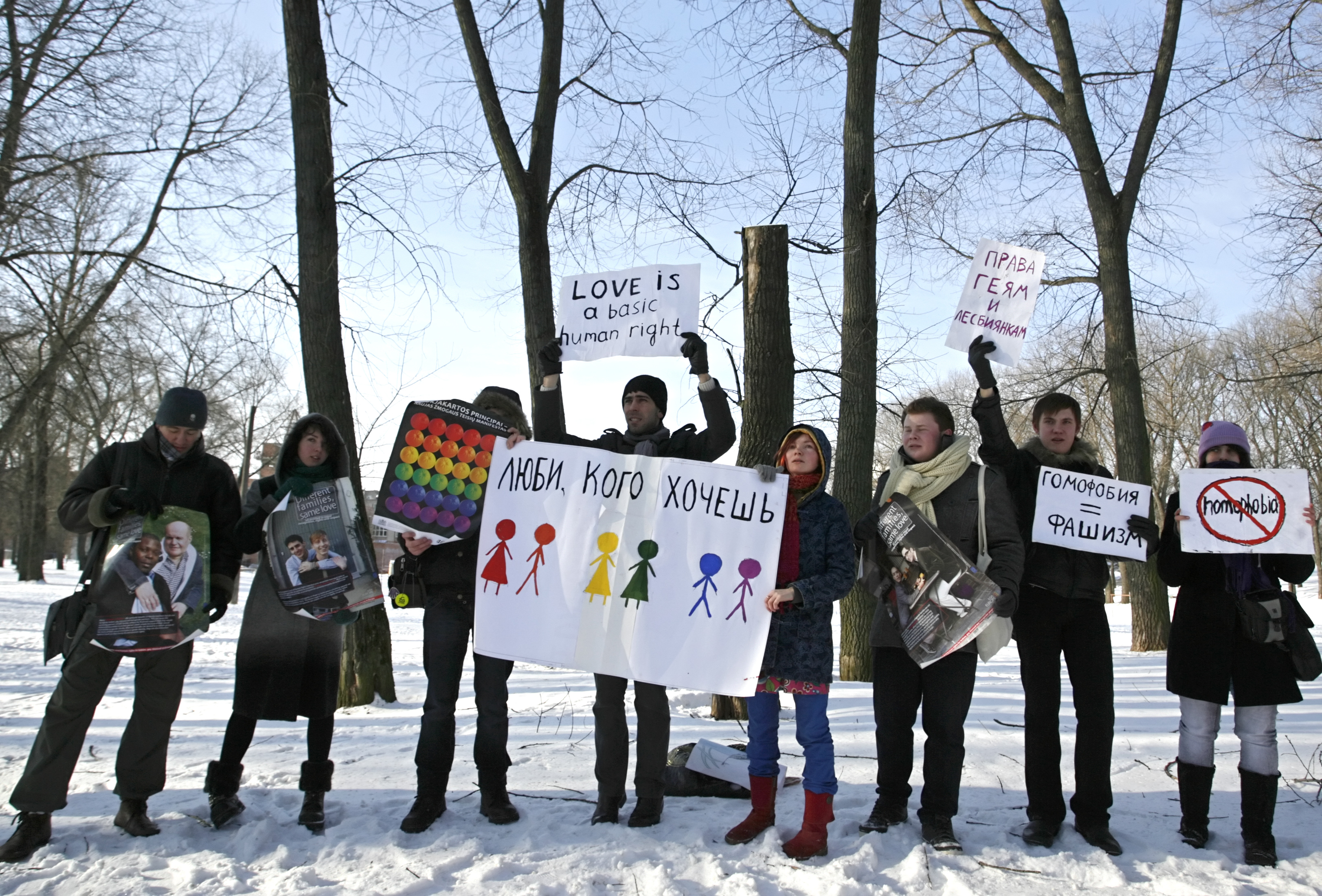In Belarus, journalists and members of the LGBTQ+ community face alarmingly restrictive landscapes.
Thirty-four journalists are currently jailed in Belarus, according to the Belarusian Association of Journalists (BAJ). Most are charged with “extremist activities” or “violating public order” as part of the crackdown on the press following the 2020 presidential election. More recently, BAJ was named as an extremist organization and its logo, website, and social media pages were included in the national list of extremist content.
For the LGBTQ+ community, though homosexuality itself is not criminalized in Belarus, there is no protection against discrimination in healthcare, employment, or education, and there is no recognition of same-sex marriage or partnership. It ranks 45th out of 49 countries in Europe “on the basis of laws and policies that have a direct impact on the LGBTI people’s human rights”, according to ILGA Europe.
Those who find themselves at the intersection of these two groups face double the pressure — and many have fled the country because of it. Two journalists, Aleh Razhkou and A.K., identified only by his initials for safety concerns, both reside outside of Belarus out of fear for their safety. Both are co-founders of Journalists for Tolerance (J4T), a Belarusian non-profit group of media workers “striving for equality and non-discrimination regardless of nationality, gender, age, race, sexual orientation, gender identity and other characteristics”.
Razkhou, who is J4T’s chairperson, described media coverage of LGBTQ+ issues in Belarus as divided into two groups. “Basically, there is propaganda, and there is an independent media reporting from abroad”, he told IPI, and that even though there are still independent journalists reporting from within Belarus, who are more willing to cover LGBTQ+ issues, they work under conditions of extreme secrecy and under threat of arrest. State propaganda media play an especially disturbing role when it comes to coverage of LGBTQ+ people: The crackdown on pro-democracy protests that began in 2020 also saw the arrest of LGBTQ+ people, who were forced to publicly out themselves and apologize for their “perversion” on television, Razkhou said. And discrimination is a widespread issue. From January to October 2022, J4T found, “53% of media publications contained incorrect speech regarding LGBTQ+, and only 47% — correct.”
J4T, which was initially founded in 2009 as the Belarusian LGBT Journalists’ Group, tries to support its members both in and out of the country. The group hosts retreats, conducts media monitoring and educational courses for journalists, and publishes news on the LGBTQ+ community on its website, GayPress.
Razhkou says he sees “a really huge crisis around our members, around LGBTQ journalists”. Many of those living in exile cannot continue their journalistic work, and some are in refugee camps with no ability to leave. For those still in Belarus, he says, it’s even worse. “Every day you can be arrested. When all your colleagues have already left the country, people just feel overwhelmed and under a high level of stress.”
Even those living in exile cannot avoid this stress. A.K. chose to leave Belarus after being filmed on public transit by someone who appeared to be a law enforcement agent while he was dropping his daughter at school, but his family remains in Belarus. They have faced repeated, targeted harassment. Visits by the authorities to his home when only his children were present, for example, have him particularly worried about their safety.
Having seen the action taken against BAJ, which he is also involved in, A.K. fears that J4T could be next to be labeled as extremist. “I personally feel very vulnerable for me and my family”, he said, given his involvement in both groups. His fear for his and his family’s safety has taken a toll — he said it prevents him from being as active a media advocate as he could be if he knew his family was safe.
The work of J4T, however, is making a difference in small ways, working to change the minds of some editors on covering LGBTQ+ issues. The group has seen numerous instances where targeted work and trainings with journalists and editors has led to direct changes in an outlet’s editorial policies on covering the LGBTQ+ community.
But at the moment, the challenges are immense, Razhkou said. “From my personal experience, it was never worse than right now. We have a really huge crisis, and we try to find ways how to get through, but it’s really hard for every individual in the community and for organizations.”
This article was published as part of a series on LGBTQ+ journalists around the world. To read the rest of the series, click here.
